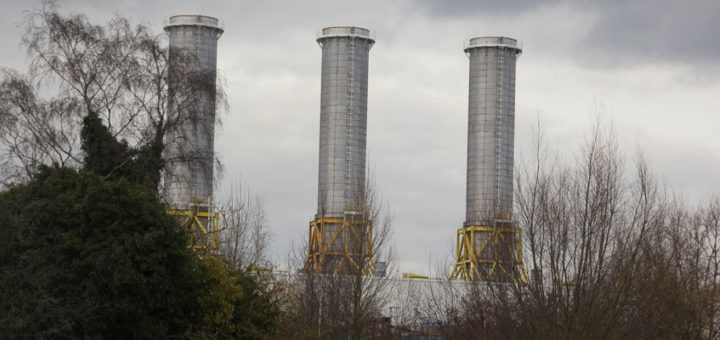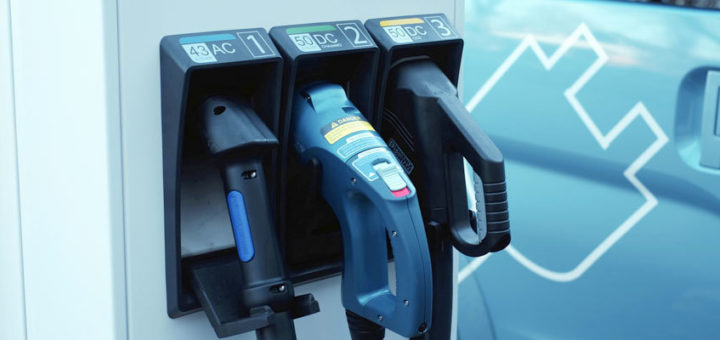UK's interest in EU's energy package
ToasterGate and Green Deal show how UK can benefit from good EU energy policies
By Richard Black
Share
Last updated:
When I was covering environmental issues for BBC News, the one surefire way to have a Radio Four editor turn down your offer of a piece for the news bulletin was to begin your pitch with the words 'The European Commission...'
Now that the UK is leaving the European Union, that stance might seem doubly justified. What possible relevance could the EU's technocratic pillar have for a Britain that will soon break free from the great Brussels docking station and pilot its proud, red-blooded course for the sunlit uplands?
In fact, if pre-Brexit Britain is wise, the Commission can have a lot of relevance. Just as some laws and regulations made in London work and some don't, the same is true for those made in Brussels. So why not pay attention to the good ones and junk the bad?
Tomorrow, the Commission unveils a set of proposals on energy policy which, judging by nudges and winks ahead of release, might contain several elements of benefit to Britain.
At the very least, its publication presents a great opportunity to start a conversation that Britain really needs to have, namely: What sort of links with Europe on energy and climate change will benefit us post-Brexit.

Advance publicity for the package indicates it will major on improving energy efficiency - aka cutting energy waste, aka improving energy productivity.
If that sounds like something that will bore a news editor just as much as the European Commission itself, that's because it is. But it's just as important.
Wasting less energy means wasting less money, building less kit, emitting less greenhouse gas. It's been a massive factor in allowing the US to decouple growth in GDP from growth in carbon emissions, and is the centrepiece of the similar trend now seen in China.
The UK's own record on this in recent years has, by general consent, been pitiful. The Green Deal - unveiled under the Coalition government at Conservatives' behest - was touted as a market-based, pay-as-you-save measure that would be good for hard-working families (ok, I'm not sure the government was mainlining that phrase at the time but if they were, they'd have deployed it for the Green Deal).
However; even worse than a policy that didn't work for everyone, it hardly worked for anyone. Only 15,000 people took it up - far short of the million+ originally envisaged. The Cameron government put it out of its misery last year - and the scars run so deep in Whitehall that no replacement has yet emerged. The UK has no coherent energy efficiency policy for industry either. All of which has led to the Committee on Climate Change observing [pdf]:
- "Emissions from non-residential buildings have shown little or no change in recent years and increased in 2015"
- "Progress in improving the energy performance of residential buildings has stalled since 2012, following good progress during the first carbon budget period, with the rate of uptake of insulation measures falling even further in 2015 despite plenty of potential remaining."
By contrast, the EU has an energy efficiency policy that's been rather good for its citizens everywhere, including in Briton: the Eco-Design Directive, which progressively increases the stringency of regulations on energy efficiency for products such as vacuum cleaners, cookers, computers and TVs.

Despite occasional commentary of brain-melting stupidity from politicians and newspapers alike, these regulations save Britons money and reduce carbon emissions with no discernible detriment; and they're popular, garnering the support of nearly 90% of Britons, and of organisations such as the Women's Institute.
So the pragmatic option for Britain is, surely, to listen to what the Commission proposes, and see if it can help us get out of the bind that we're undoubtedly in.
The top line is likely to be a number - probably, that the current target of improving energy efficiency by 27% by 2030 should be raised - somewhere between 30%, which is thought to be what the Commission privately favours, and 40%, which the European Parliament wants.
It's worth noting in passing that the UK under David Cameron wouldn't back a target higher than 27%, despite evidence that energy efficiency is a better investment than energy production. For fear, it's said, of those brain-meltingly stupid headlines.
However, the really interesting stuff will lie not in the headline figure but in the proposed mechanisms. Climate Action and Energy Commissioner Miguel Arias Cañete suggests that improving energy productivity is something that should run right through European governments - 'in the DNA', to use once more that already over-used phrase.
With national debt near £1.8 trillion and rising like a soufflé, you might think that's something which Theresa May and Philip Hammond would be keen to adopt.
Brown capacity
The package is likely to propose other things of benefit to Britain. One, already trailed, involves rules on capacity mechanisms - policies intended to ensure security of electricity supply during the transition to a system based on varying renewable generation.
The UK was the first EU nation to introduce a capacity mechanism; and although it's been successful so far, procuring enough generation capacity at lower prices than forecast, it's also a retrograde measure in the sense that it keeps old, heavily polluting coal-fired power stations online longer than necessary and hasn't so far stimulated investment in new gas-fired plant. It also perversely incentivises new diesel generation for use at times of peak demand.
Mr Cañete is likely to propose an upper limit on carbon emissions from plants funded through a capacity mechanism. Depending on the details, this could disbar both coal and diesel. Doing so would incentivise both new gas-fired plant and genuine demand-side response (DSR), where customers are rewarded for turning off non-essential processes at times of peak demand. It could incentivise new nuclear build too.
For Britain, this simple regulation would cut air pollution, cut carbon emissions, and stimulate components of the smart, flexible electricity system that ministers say they want to establish.

Two more likely components of the package would also appear to align with British ambitions.
One concerns the UK's aim to become a leader in electric vehicles. The Commission is expected to propose that every new property in Europe be equipped with EV charging points - and as it's cheaper to instal equipment during construction than afterwards, this sounds like a no-brainer. (Although, to be fair, so did the UK's Zero-Carbon Homes policy until George Osborne abruptly cancelled it.)
The other is a bit more wide-ranging, and again it'll be interesting to see the details; but essentially the aim is to empower and equip people, community groups and innovative companies to do their own low-carbon energy thing - building and operating renewable energy projects, ensuring DSR providers can compete with established generators on a level playing field. Unless you're a Big Six utility, then what - in a Britain where citizens and communities clearly feel disempowered and trodden down by 'the Man' - is there not to like?
The politics of the present basically allow ministers to treat these European developments as a smorgasbord. And the Commission's package might have duds in it - let's wait and see. Now the Brexit decision is done, there's no reason to be ideological about it.
As I noted above, there is lots more discussion to be had about how the UK should relate to the rest of Europe (in the senses of the EU and of the wider continent) in energy and climate change matters.
Meanwhile, let's see what the Commission proposes - and see whether it gets on the radio...
Share